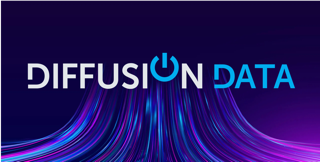Embracing Technology for a Sustainable Future: Combating Climate Change Together
August 23, 2023 | Riaz Mohammed
In recent times, the world has witnessed the alarming impact of climate change through devastating heatwaves, rampant wildfires, and extreme temperatures across Europe, Asia, Australia, and the Americas. With the intensifying influence of El Niño, the warming of oceans everywhere is a stark reminder of the urgent need to address this global crisis. While El Niño is a natural phenomenon that has occurred for centuries, its recent heightened occurrences have profound effects on both life and livelihood. Climate models predict that these events will only become more severe in the future, underscoring the necessity to take action against climate change with utmost seriousness.
In the digital era, we have the advantage of living in a hyper-connected world where information is readily available at our fingertips. This enables us to gain a deeper understanding of climate change and its complex ramifications. However, while knowledge is essential, it is crucial to question whether we are doing enough to combat this pressing issue.
Unifying Industries for Collective Action:
Addressing climate change requires collective efforts from every industry as each contributes to the problem. The Exponential Roadmap, championed by the World Economic Forum, proposes ambitious plans to halve emissions across various sectors by 2030. The focal point in all industries is adopting innovative technologies that exponentially increase output and efficiency, thereby reducing energy consumption. For example, the advent of 5G, which offers a remarkable 100-fold increase in speed over 4G, coupled with lower energy consumption, has demonstrated its potential impact. Another notable technology, Delta Streaming, significantly reduces data in transit by up to 90% through the transmission of incremental changes, an invaluable approach considering the vast amount of data generated annually.
Beyond technological advancements, fostering effective communication and collaboration among industries is paramount to eliminate redundancy and disconnected processes. Industry convergence can lead to improved service quality, speed, and reliability. For instance, the global food industry can optimize its impact through seamless collaboration with transportation and logistics, while the energy sector must work closely with transportation, distribution, manufacturing, finance, and other domains to analyse demand and optimize delivery.
Energy Sector Focus:
The energy/power sector stands as a strategic ecosystem encompassing production, storage, and distribution. Efficient collaboration among various stakeholders, including renewable and traditional energy producers, distributors, network operators, and infrastructure providers, is essential. Active communication of information plays a pivotal role in driving efficiency and sustainability.
Digital transformation has been a significant driver of innovation, business agility, and growth across industries, especially during the COVID-19 pandemic. We now live in a world where digital footprints mark our every move. Embracing technology and its impact on all sectors are imperative for achieving Environmental, Social, and Governance (ESG) goals. However, challenges arise when processing vast amounts of data centrally, resulting in increased energy consumption and reduced sustainability for ecosystems like energy, logistics, IoT, utilities, and smart cities.
In the case of a large ecosystem like the Energy sector which deals with production, storage and distribution, along with Power, flows Data. Capturing the right data from various parts of the ecosystem with the ability to analyse and deliver insights in a time sensitive manner without friction to all participants, is imperative to ensure a robust, reliable service.
Decentralized Networks to drive Efficiency
To mitigate these challenges, decentralized networks offer a promising solution. These networks handle and compute data closer to its origin, transmitting only relevant information, thus minimizing central data processing and reducing data circulation. Smart cities serve as an example where adopting centralized data collection and analysis would require excessive computation power and energy, leading to inefficiencies. The development of data messaging platforms like Diffusion proves pivotal in this regard.
Diffusion emerges as a game-changing technology that can accommodate tens of thousands to millions of connections simultaneously, while its patented delta streaming technology significantly reduces data transmission by sending only incremental changes. This platform empowers the creation of tailored data variants for applications, ensuring optimal data movement. By adopting such solutions, industries can enhance their ESG credentials and drive efficiency towards achieving their sustainability goals.
The urgency of combating climate change necessitates collective and determined action. Leveraging technology and effective communication holds the key to a sustainable future. From promoting industry collaboration to adopting innovative technologies, we can forge a path towards a greener, more resilient world. By uniting industries and adopting transformative technologies, we can steer our planet towards a sustainable tomorrow for generations to come.
Further reading

BLOG
100 million updates per second - Landmark Diffusion cluster performance
July 02, 2024
Read More about 100 million updates per second - Landmark Diffusion cluster performance/span>

BLOG
React PubSub using Diffusion Websocket Server
July 08, 2024
Read More about React PubSub using Diffusion Websocket Server/span>

BLOG
DiffusionData shortlisted for multiple awards 2025
April 22, 2025
Read More about DiffusionData shortlisted for multiple awards 2025/span>













